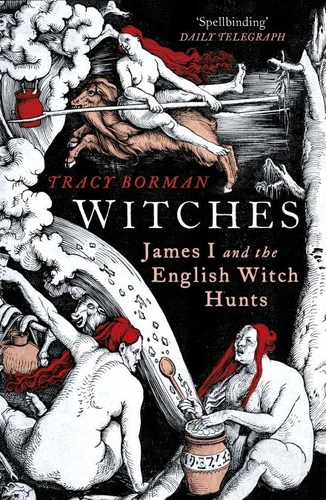Witches. A Tale of Sorcery, Scandal and Seduction
Par :Formats :
Disponible dans votre compte client Decitre ou Furet du Nord dès validation de votre commande. Le format ePub protégé est :
- Compatible avec une lecture sur My Vivlio (smartphone, tablette, ordinateur)
- Compatible avec une lecture sur liseuses Vivlio
- Pour les liseuses autres que Vivlio, vous devez utiliser le logiciel Adobe Digital Edition. Non compatible avec la lecture sur les liseuses Kindle, Remarkable et Sony
- Non compatible avec un achat hors France métropolitaine
 , qui est-ce ?
, qui est-ce ?Notre partenaire de plateforme de lecture numérique où vous retrouverez l'ensemble de vos ebooks gratuitement
Pour en savoir plus sur nos ebooks, consultez notre aide en ligne ici
- Nombre de pages320
- FormatePub
- ISBN978-1-4481-6346-5
- EAN9781448163465
- Date de parution29/08/2013
- Protection num.Adobe DRM
- Infos supplémentairesepub
- ÉditeurVintage Digital
Résumé
September 1613. In Belvoir Castle, the heir of one of England's great noble families falls suddenly and dangerously ill. His body is 'tormented' with violent convulsions. Within a few short weeks he will suffer an excruciating death. Soon the whole family will be stricken with the same terrifying symptoms. The second son, the last male of the line, will not survive. It is said witches are to blame.
And so the Earl of Rutland's sons will not be the last to die. Witches traces the dramatic events which unfolded at one of England's oldest and most spectacular castles four hundred years ago. The case is among those which constitute the European witch craze of the 15th-18th centuries, when suspected witches were burned, hanged, or tortured by the thousand. Like those other cases, it is a tale of superstition, the darkest limits of the human imagination and, ultimately, injustice - a reminder of how paranoia and hysteria can create an environment in which nonconformism spells death.
But as Tracy Borman reveals here, it is not quite typical. The most powerful and Machiavellian figure of the Jacobean court had a vested interest in events at Belvoir. He would mastermind a conspiracy that has remained hidden for centuries.
And so the Earl of Rutland's sons will not be the last to die. Witches traces the dramatic events which unfolded at one of England's oldest and most spectacular castles four hundred years ago. The case is among those which constitute the European witch craze of the 15th-18th centuries, when suspected witches were burned, hanged, or tortured by the thousand. Like those other cases, it is a tale of superstition, the darkest limits of the human imagination and, ultimately, injustice - a reminder of how paranoia and hysteria can create an environment in which nonconformism spells death.
But as Tracy Borman reveals here, it is not quite typical. The most powerful and Machiavellian figure of the Jacobean court had a vested interest in events at Belvoir. He would mastermind a conspiracy that has remained hidden for centuries.
September 1613. In Belvoir Castle, the heir of one of England's great noble families falls suddenly and dangerously ill. His body is 'tormented' with violent convulsions. Within a few short weeks he will suffer an excruciating death. Soon the whole family will be stricken with the same terrifying symptoms. The second son, the last male of the line, will not survive. It is said witches are to blame.
And so the Earl of Rutland's sons will not be the last to die. Witches traces the dramatic events which unfolded at one of England's oldest and most spectacular castles four hundred years ago. The case is among those which constitute the European witch craze of the 15th-18th centuries, when suspected witches were burned, hanged, or tortured by the thousand. Like those other cases, it is a tale of superstition, the darkest limits of the human imagination and, ultimately, injustice - a reminder of how paranoia and hysteria can create an environment in which nonconformism spells death.
But as Tracy Borman reveals here, it is not quite typical. The most powerful and Machiavellian figure of the Jacobean court had a vested interest in events at Belvoir. He would mastermind a conspiracy that has remained hidden for centuries.
And so the Earl of Rutland's sons will not be the last to die. Witches traces the dramatic events which unfolded at one of England's oldest and most spectacular castles four hundred years ago. The case is among those which constitute the European witch craze of the 15th-18th centuries, when suspected witches were burned, hanged, or tortured by the thousand. Like those other cases, it is a tale of superstition, the darkest limits of the human imagination and, ultimately, injustice - a reminder of how paranoia and hysteria can create an environment in which nonconformism spells death.
But as Tracy Borman reveals here, it is not quite typical. The most powerful and Machiavellian figure of the Jacobean court had a vested interest in events at Belvoir. He would mastermind a conspiracy that has remained hidden for centuries.















